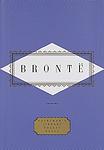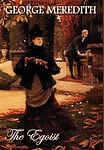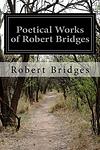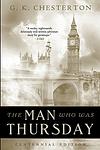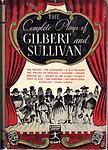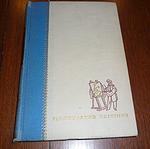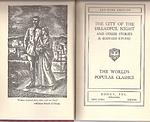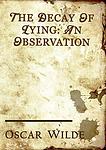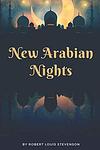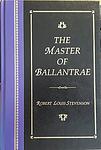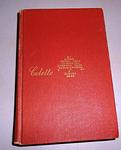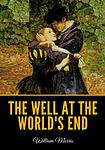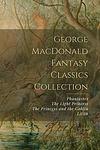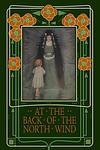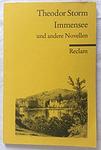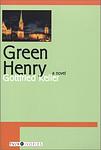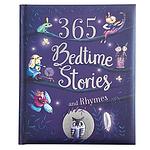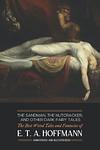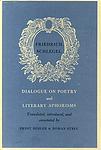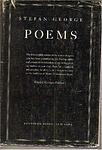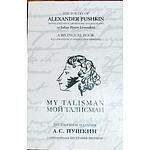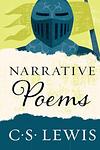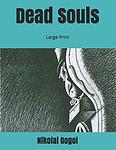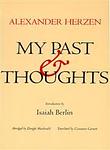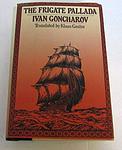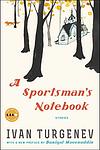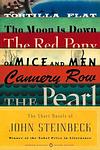Harold Bloom's The Western Canon
This is one of the 305 lists we use to generate our main The Greatest Books list.
-
New Grub Street: A Novel by George Gissing
"New Grub Street" is a novel set in the literary and journalistic circles of 1880s London. The story revolves around two writers, one who seeks wealth and status and the other who values artistic integrity over material success. It provides a stark and realistic portrayal of the struggles faced by writers, including financial hardship, the pressure to compromise artistic integrity for commercial success, and the destructive effects of these pressures on personal relationships and mental health. The book is a critique of the commercialization of literature and journalism during the period, and a commentary on the conflict between art and commerce.
The 659th Greatest Book of All Time -
Poems And Ballads by Algernon Charles Swinburne
"Poems and Ballads" is a collection of lyrical poetry that delves into themes of love, death, and sensual beauty with a rebellious and often controversial fervor. The work is known for its rich, musical language and its exploration of taboo subjects, which challenged the moral sensibilities of the Victorian era. The poet's intricate verse and passionate intensity weave together classical allusions and personal emotion, creating a tapestry of provocative and enduring literary art that both scandalized and captivated 19th-century readers.
The 7180th Greatest Book of All Time -
Jane Eyre by Charlotte Brontë
The novel follows the life of Jane Eyre, an orphan who is mistreated by her relatives and sent to a charity school. As she grows up, Jane becomes a governess at Thornfield Hall, where she falls in love with the brooding and mysterious Mr. Rochester. However, she soon learns of a dark secret in his past that threatens their future together. The story is a profound exploration of a woman's self-discovery and her struggle for independence and love in a rigid Victorian society.
The 20th Greatest Book of All Time -
Villette by Charlotte Brontë
The novel follows the life of Lucy Snowe, a young Englishwoman with no family or prospects, who moves to the fictional French town of Villette to teach at a girls' school. As she navigates her new life, she becomes entangled in a love triangle with a fiery professor and a charismatic doctor. The story explores themes of isolation, independence, and the constraints of societal expectations for women.
The 1182nd Greatest Book of All Time -
The Poems of Emily Bronte by Emily Brontë
This book is a collection of the poetic works of a renowned 19th-century English novelist and poet. The poems reflect her deep connection with nature and her profound understanding of human emotions. Through her poetry, she explores themes such as love, death, and faith, often invoking the wild and rugged landscape of Yorkshire, which greatly influenced her work. The collection serves as a testament to her skill as a poet, showcasing her ability to capture complex feelings and thoughts in beautifully crafted verses.
The 4157th Greatest Book of All Time -
Wuthering Heights by Emily Brontë
This classic novel is a tale of love, revenge and social class set in the Yorkshire moors. It revolves around the intense, complex relationship between Catherine Earnshaw and Heathcliff, an orphan adopted by Catherine's father. Despite their deep affection for each other, Catherine marries Edgar Linton, a wealthy neighbor, leading Heathcliff to seek revenge on the two families. The story unfolds over two generations, reflecting the consequences of their choices and the destructive power of obsessive love.
The 11th Greatest Book of All Time -
Vanity Fair by William Makepeace Thackeray
This classic novel follows the lives of two contrasting women, the cunning and ruthless Becky Sharp and the sweet and naive Amelia Sedley, against the backdrop of English society during the Napoleonic Wars. The book is a satirical exploration of the obsession with wealth, status, and social climbing, and the moral bankruptcy that can result from such pursuits. The narrative weaves an intricate tale of love, betrayal, and redemption, exposing the vanity and hypocrisy of high society.
The 72nd Greatest Book of All Time -
The History Of Henry Esmond by William Makepeace Thackeray
The novel is a historical fiction set in the late 17th and early 18th centuries, chronicling the life of its protagonist, an officer in the English army. Born to uncertain parentage, he is raised by a noble family and develops a deep affection for his benefactors' daughter. The narrative follows his experiences in the military, his travels abroad, and his involvement in the political and religious conflicts of the era, including the Jacobite Rebellion. Throughout his life, he grapples with questions of honor, love, and identity, against the backdrop of the shifting fortunes of the British monarchy and the complexities of the society in which he lives.
The 831st Greatest Book of All Time -
Poems Of George Meredith by George Meredith
The collection presents a rich tapestry of verse by a Victorian-era English novelist and poet, known for his mastery of language and insightful portrayal of human nature. The poems within this anthology span a variety of themes, from the pastoral beauty of the English countryside to the intricate complexities of love and the human psyche. The poet's work is characterized by its intellectual depth, psychological insight, and the use of innovative poetic forms. His lyrical prowess and philosophical musings are evident throughout the collection, which remains a testament to his enduring influence on English literature.
The 7180th Greatest Book of All Time -
The Egoist by George Meredith
The novel is a satirical portrayal of Victorian society and its marriage customs, focusing on the story of a self-absorbed, wealthy gentleman who is blind to his own egotism and the effects it has on those around him. His misguided attempts at courtship and his inability to understand the needs and feelings of others, particularly the intelligent and independent woman he wishes to marry, lead to a series of comedic and dramatic misunderstandings. The narrative delves into themes of love, self-knowledge, and the struggle for personal freedom, all while critiquing the social norms and gender roles of the time.
The 1028th Greatest Book of All Time -
Poems Of Francis Thompson by Francis Thompson
This collection brings together the lyrical and deeply spiritual poetry of a writer whose works reflect a profound and intense contemplation of both the divine and the human condition. The poems are characterized by their rich language, vivid imagery, and the author's personal struggle with addiction, poverty, and his relationship with God. The poet's most famous piece, often anthologized, compares the pursuit of the divine with a game of hide and seek, illustrating the poet's belief in a God that is both elusive and omnipresent in the beauty of the world. The anthology as a whole showcases the poet's unique ability to blend the mystical with the personal, creating works that resonate with readers on multiple levels.
The 7180th Greatest Book of All Time -
Poems Of Lionel Johnson by Lionel Johnson
This collection is an assemblage of lyrical poetry that delves into the themes of spirituality, morality, and the human condition, reflecting the author's complex relationship with faith and the challenges of his time. The poet's work is characterized by a blend of classical form and a rich, melancholic tone, often exploring the tension between earthly pleasures and higher, spiritual aspirations. The poems are marked by their intellectual depth, intricate craftsmanship, and a pervasive sense of introspection, offering readers a glimpse into the poet's introspective and sometimes troubled soul.
The 7180th Greatest Book of All Time -
Poetical Works Of Robert Bridges by Robert Bridges
The collection presents an assemblage of lyrical and philosophical poetry that reflects the author's mastery of meter and form, as well as his engagement with themes of nature, love, spirituality, and the human condition. The poet's classical influences and commitment to refining the English poetic tradition are evident throughout the works, which range from sonnets to longer, more complex compositions. The anthology showcases the evolution of the poet's style and thought, offering readers a comprehensive view of his contribution to English literature.
The 7180th Greatest Book of All Time -
Collected Poems by Jack Gilbert
"Collected Poems" is a compilation of works by a renowned poet, known for his minimalist style and profound themes. The book features a wide range of poems that explore human emotions, life experiences, love, loss, and the beauty of simplicity. The poet's unique perspective is evident in his vivid imagery and thought-provoking verses, offering readers a deep, introspective journey through his life and thoughts.
The 5875th Greatest Book of All Time -
The Man Who Was Thursday by G. K. Chesterton
"The Man Who Was Thursday" is a metaphysical thriller that revolves around a poet turned detective who infiltrates a secret society of anarchists in London. Each member of the society is named after a day of the week, and the protagonist becomes 'Thursday.' As he delves deeper, he discovers that the other members are also undercover detectives, each unaware of the others' true identities. The narrative explores themes of order and chaos, faith and unbelief, with a surprising twist regarding the identity of the society's leader, 'Sunday.'
The 596th Greatest Book of All Time -
Erewhon by Samuel Butler
"Erewhon" is a satirical novel set in a fictional country discovered by the protagonist during his exploration. The society in this country is unusual, where illness is considered a crime, crime is treated as a disease, and machines are feared for their potential to evolve and overtake humanity. The book uses this bizarre world to critique various aspects of Victorian society, including religion, morality, and the industrial revolution.
The 1327th Greatest Book of All Time -
Way of All Flesh by Samuel Butler
The novel follows the life of Ernest Pontifex, from his birth in the early 19th century until his middle age, and his struggle against the restrictive morality of Victorian England. Raised in a stiflingly oppressive household by his hypocritical clergyman father and submissive mother, Ernest eventually rebels against his upbringing, leading to his imprisonment for a minor crime. Upon his release, he rejects his past life and religious beliefs, eventually finding happiness and success as a writer. The novel provides a scathing satire of Victorian-era attitudes towards religion and family life.
The 543rd Greatest Book of All Time -
Complete Plays Of Gilbert And Sullivan by W. S. Gilbert
This collection brings together the witty and whimsical operatic works that emerged from the celebrated collaboration between a librettist and a composer, which captivated Victorian England and continue to delight audiences today. The book contains the complete texts of their satirical and comic operas, known for their clever wordplay, memorable melodies, and incisive social commentary. From tales of love aboard a British ship to the topsy-turvy world of a land where flirting is a capital offense, these plays skewer the foibles of society, politics, and culture, all while entertaining with their unique blend of humor and song.
The 7180th Greatest Book of All Time -
Bab Ballads by W. S. Gilbert
The collection in question is a series of whimsical and satirical poems, originally penned for a Victorian-era magazine before being compiled into a book. These verses, often accompanied by the author's own comical illustrations, present a quirky and irreverent look at the follies and foibles of English society. The poems are characterized by their playful use of language, surprising twists, and a sharp wit that skewers the pretensions and absurdities of the author's contemporaries, all while maintaining a light-hearted and entertaining tone.
The 7180th Greatest Book of All Time -
The Moonstone by Wilkie Collins
"The Moonstone" is a detective novel that revolves around a large, valuable yellow diamond that was stolen from an Indian temple and is now in England. The diamond is bequeathed to a young woman on her eighteenth birthday, but is stolen that same night. The novel follows the investigation of the theft, which is complicated by a series of confusing events and false leads. The resolution involves the unraveling of a tangled web of deception, crime, and colonial guilt.
The 297th Greatest Book of All Time -
The Woman in White by Wilkie Collins
A captivating tale of mystery and suspense, "The Woman in White" follows the story of a young art teacher, Walter Hartright, who encounters a mysterious woman dressed in white on a moonlit road. The woman is revealed to be a mental asylum escapee, and as Hartright delves into her story, he uncovers a web of deceit, madness, and dangerous secrets involving a wealthy, titled family. The narrative explores themes of identity, insanity, and the abuse of power, with a complex plot filled with twists and turns.
The 164th Greatest Book of All Time -
No Name by Wilkie Collins
The novel revolves around the plight of a young woman who, after the sudden death of her parents, discovers that due to a legal technicality, she and her sister are left destitute and illegitimate. Stripped of her social standing and inheritance, she embarks on a quest for vengeance against the relatives who have wronged her. Assuming various identities and employing cunning and deception, she manipulates events and people to reclaim what she believes is rightfully hers, navigating the complexities of Victorian society and the rigid legal system that disenfranchised her. Throughout her journey, she grapples with the moral implications of her actions and the true meaning of family and identity.
The 7180th Greatest Book of All Time -
Odes by Coventry Patmore
"Odes" is a collection of lyrical poems that delve into the themes of love, spirituality, and the human condition. The poet employs a rich tapestry of language and classical references to explore the depths of emotion and the transcendent aspects of everyday life. Through a series of contemplative and often philosophical verses, the work reflects on the nature of beauty, the complexities of relationships, and the pursuit of truth, offering readers a meditative and introspective journey into the heart of Victorian poetic expression.
The 7180th Greatest Book of All Time -
The City Of The Dreadful Night by James Thomson
"The City of the Dreadful Night" is a long poem that delves into the profound depths of existential despair and the search for meaning in a seemingly indifferent universe. Set within a dark, sprawling city that symbolizes a world devoid of hope and faith, the poem's melancholic tone and bleak imagery reflect the author's own struggles with depression and disillusionment. Through a series of encounters with various inhabitants of the city, the narrative explores themes of loneliness, the human condition, and the quest for solace in an uncaring world, ultimately presenting a stark, pessimistic view of life without the consolation of religious belief or the possibility of redemption.
The 7180th Greatest Book of All Time -
Plays by Oscar Wilde
This collection of works by a renowned 19th-century playwright is a brilliant exploration of social satire, wit, and the examination of Victorian society's norms and hypocrisies. The plays within often feature sharp dialogue, complex characters, and intricate plots that challenge social mores and personal morality. Themes such as the superficial nature of social status, the conflict between true love and societal expectation, and the duality of human nature are woven throughout these comedic yet thought-provoking dramas. The author's clever use of language and paradox, along with his critique of aristocratic attitudes, ensure that the plays remain enduring favorites on the stage and continue to engage readers and audiences with their timeless relevance and humor.
The 7180th Greatest Book of All Time -
The Picture of Dorian Gray by Oscar Wilde
The novel follows the life of a handsome young man who, after having his portrait painted, is upset to realize that the painting will remain beautiful while he ages. After expressing a wish that the painting would age instead of him, he is shocked to find that his wish comes true. As he indulges in a life of hedonism and immoral acts, his portrait becomes increasingly grotesque, reflecting the damage his actions have on his soul. The story serves as a cautionary tale about the dangers of vanity, selfishness, and the pursuit of pleasure without regard for consequences.
The 93rd Greatest Book of All Time -
Essays Of Oscar Wilde by Oscar Wilde
This collection of essays showcases the sharp wit and insightful social commentary of one of the most celebrated writers of the late 19th century. The essays span a range of topics, from art and aesthetics to criticism and personal reflections, all delivered with the author's distinctive blend of eloquence and irony. The author's keen observations on Victorian society, his exploration of beauty and its relation to life, and his thoughts on the role of the artist make this compilation a treasure trove for readers interested in literature, philosophy, and the enduring complexities of human nature.
The 7180th Greatest Book of All Time -
The Complete Letters Of Oscar Wilde by Oscar Wilde
This compilation is an exhaustive collection of correspondence penned by one of the most celebrated writers of the Victorian era, known for his wit, eloquence, and flamboyant style. The letters provide an intimate glimpse into the author's life, covering his rise to fame, his relationships, his trials, and his time in prison. They reveal his personal thoughts on art, literature, society, and his own creative process. The collection is not only a treasure trove for literary enthusiasts and scholars but also a poignant, revealing portrait of a complex man who was a central figure in the aesthetic movement of the late 19th century.
The 9484th Greatest Book of All Time -
Ballads And Songs by John Davidson
"Ballads and Songs" is a collection of lyrical poetry that delves into themes of love, mortality, and the human condition, reflecting the author's fascination with both the romantic and the macabre. The poems often employ vivid imagery and rhythmic verse to explore the complexities of life and the nature of reality, drawing on both traditional ballad forms and the author's unique, modern sensibility. The work is known for its emotional depth, intellectual rigor, and the ability to capture the spirit of its time through a blend of classical and contemporary influences.
The 7180th Greatest Book of All Time -
Complete Poems by Ernest Dowson
This collection brings together the lyrical and melancholic poetry of a late 19th-century English poet known for his fin de siècle verse characterized by its moods of weariness and regret. The poems often reflect themes of unrequited love, the fleeting nature of beauty and youth, and a deep sense of loss, all delivered with a mastery of meter and an exquisite use of language. The poet's work, though not extensive due to his short life, had a significant influence on the literature of the era, and his phrases have entered the common lexicon, capturing the decadent spirit of his time.
The 7180th Greatest Book of All Time -
Adam Bede by George Eliot
"Adam Bede" is a 19th-century novel set in rural England that explores the themes of love, betrayal, and moral responsibility. The story revolves around a hardworking carpenter, Adam Bede, who is in love with a vain but beautiful dairymaid, Hetty Sorrel. However, Hetty is seduced by a young, thoughtless squire, Arthur Donnithorne, which leads to her becoming pregnant. When Arthur abandons her, Hetty leaves her baby in the woods, where it dies, and she is subsequently charged with infanticide. Adam, devastated by Hetty's actions, finds solace and eventually love with a devout Methodist preacher, Dinah Morris. The novel ends with Adam and Dinah marrying, finding happiness after the tragedy.
The 473rd Greatest Book of All Time -
Silas Marner by George Eliot
Silas Marner, a weaver, is wrongfully accused of theft and excommunicated from his community in Lantern Yard. He moves to the village of Raveloe, where he lives as a recluse, hoarding his money. After his money is stolen, he adopts a young girl named Eppie, who was abandoned near his home. Eppie's presence transforms Silas's life, and he becomes a cherished member of the community. The novel explores themes of betrayal, redemption, and the transformative power of love.
The 408th Greatest Book of All Time -
The Mill on the Floss by George Eliot
"The Mill on the Floss" is a novel that explores the lives of siblings Tom and Maggie Tulliver, who grow up at Dorlcote Mill on the River Floss. The book delves into their experiences in the rural society of the time, their complex relationship, and the choices they make in adulthood. The story is marked by themes of love, betrayal, societal expectations, and the struggle between individual desires and family obligations. The tragic ending underscores the consequences of societal norms and the struggle against them.
The 333rd Greatest Book of All Time -
Middlemarch by George Eliot
Set in the fictitious English town of Middlemarch during the early 19th century, the novel explores the complex web of relationships in a close-knit society. It follows the lives of several characters, primarily Dorothea Brooke, a young woman of idealistic fervor, and Tertius Lydgate, an ambitious young doctor, who both grapple with societal expectations, personal desires, and moral dilemmas. Their stories intertwine with a rich tapestry of other townsfolk, reflecting themes of love, marriage, ambition, and reform, making a profound commentary on the human condition.
The 23rd Greatest Book of All Time -
Daniel Deronda by George Eliot
"Daniel Deronda" is a novel that explores the intersecting lives of its two main characters: Gwendolen Harleth, a beautiful but shallow young woman who is forced into an oppressive marriage to escape poverty, and Daniel Deronda, a compassionate and intelligent young man who, after being raised by a wealthy English gentleman, discovers his Jewish heritage. The story delves into themes of love, identity, and moral responsibility, set against the backdrop of Victorian England's societal norms and prejudices.
The 573rd Greatest Book of All Time -
Essays Of Robert Louis Stevenson by Robert Louis Stevenson
This collection of essays offers a window into the mind of its renowned author, showcasing his wide-ranging interests, personal reflections, and literary prowess. The essays cover topics as diverse as travel, dreams, writing, and the complexities of human nature, all conveyed with the author's characteristic wit, eloquence, and insight. Through these pieces, readers are invited to ponder life's great questions and to appreciate the everyday wonders that the author observes with such keen perception and articulates with timeless grace.
The 7180th Greatest Book of All Time -
Kidnapped by Robert Louis Stevenson
This adventure novel follows the journey of a young Scottish man, David Balfour, who is tricked by his uncle and sold into slavery. After being shipwrecked, he partners with a Jacobite rebel, Alan Breck Stewart, and they journey across the Scottish Highlands, evading authorities and battling foes. Throughout the narrative, themes of justice, friendship, and courage are explored, set against the backdrop of 18th-century Scottish politics.
The 1034th Greatest Book of All Time -
The Strange Case of Dr. Jekyll and Mr. Hyde by Robert Louis Stevenson
This classic novel explores the duality of human nature through the story of a respected London doctor who creates a potion that transforms him into a sinister, violent alter ego. As the doctor increasingly loses control over when the transformations occur, his alter ego's evil deeds escalate, causing havoc in the community. The narrative is a chilling exploration of humanity's capacity for evil and the struggle for individuals to reconcile their public personas with their private desires.
The 235th Greatest Book of All Time -
Treasure Island by Robert Louis Stevenson
This classic adventure novel tells the story of young Jim Hawkins, who stumbles upon a treasure map and embarks on a perilous journey to find the buried treasure. Along the way, he encounters a host of memorable characters, including the cunning and treacherous Long John Silver. The narrative is filled with action, intrigue, and suspense, as Hawkins and his companions face pirates, mutiny, and other dangers in their quest for the hidden treasure.
The 104th Greatest Book of All Time -
The New Arabian Nights by Robert Louis Stevenson
This collection of stories weaves a tapestry of adventure, mystery, and the exotic, set against the backdrop of the European and Eastern landscapes. It follows the exploits of a whimsical club of adventurers who engage in a series of thrilling escapades, from a bizarre murder investigation to the pursuit of a secret society. The tales are imbued with the spirit of the original Arabian Nights, blending the fantastic with the realistic, and are characterized by the author's signature wit and vivid imagination. Through these narratives, the book explores themes of romance, honor, and the nature of storytelling itself, all while captivating readers with its inventive plots and colorful characters.
The 7180th Greatest Book of All Time -
The Master of Ballantrae: A Winter's Tale by Robert Louis Stevenson
"The Master of Ballantrae: A Winter's Tale" is a captivating adventure story set in Scotland during the Jacobite rebellion of 1745. The narrative revolves around two brothers, James and Henry Durie, who are torn apart by their conflicting loyalties to the English king and the exiled Stuart court. The elder, James, is presumed dead after a lost battle, but returns years later to claim his inheritance, leading to a bitter feud that spans continents and decades. The story is filled with duels, treachery, shipwrecks, and buried treasure, exploring themes of love, hate, revenge, and the destructive power of obsession.
The 1772nd Greatest Book of All Time -
Weir Of Hermiston by Robert Louis Stevenson
The unfinished novel set in the time of the Napoleonic Wars tells the story of Archie Weir, a young man at odds with his stern father, Lord Hermiston, the Lord Justice-Clerk of Scotland. Exiled to his family's rural estate, Hermiston, after expressing unpopular opinions in court, Archie falls in love with Christina Elliott, a spirited local girl. The narrative explores themes of justice, passion, and societal expectations, as Archie's personal growth and romantic desires clash with the harsh realities of his father's unyielding moral code. The novel's abrupt end, due to the author's untimely death, leaves the resolution of these conflicts to the reader's imagination.
The 7180th Greatest Book of All Time -
Early Romances by William Morris
"Early Romances" is a collection of prose romances that delve into the realms of fantasy and medieval chivalry, weaving tales of knights, damsels, and mythical creatures. The stories are characterized by their rich, ornate language and their exploration of themes such as love, honor, and adventure. Set in a world that blends historical detail with imaginative fiction, the book invites readers into a bygone era of heroism and romance, showcasing the author's passion for medievalism and his skill in creating enchanting narratives that have captivated audiences since their publication.
The 7180th Greatest Book of All Time -
The Poems Of William Morris by William Morris
This collection brings together the lyrical and narrative poetry of a renowned Victorian-era artist, designer, and writer, showcasing his talents as a poet. The verses within reflect the author's fascination with medieval themes, chivalric romance, and the idyllic pastoral life, often imbued with a sense of nostalgia and a critique of industrial society. His poetry is characterized by its rich, vivid imagery, and its use of archaic language, which echoes the troubadours and ancient bards, revealing a yearning for beauty and a utopian world that stands in stark contrast to the realities of his time.
The 7180th Greatest Book of All Time -
The Earthly Paradise by William Morris
"The Earthly Paradise" is a collection of narrative poems that weave together classical and medieval stories of love, adventure, and mythology. Set within a frame narrative of seafarers who have escaped the Black Death in search of an earthly paradise, the work explores themes of longing, the passage of time, and the pursuit of beauty. Each month, a tale is told by one of the wanderers or by a resident of the idyllic land they discover, creating a rich tapestry of storytelling that reflects on human desires and the transient nature of life and happiness. The poems are known for their lush language and the romantic escapism they offer, characteristic of the 19th-century's fascination with pre-industrial and fantastical themes.
The 7180th Greatest Book of All Time -
The Well At The World's End by William Morris
The book is a pioneering fantasy novel that follows the adventures of a young prince named Ralph of Upmeads, who embarks on a quest for the fabled Well at the World's End, believed to grant eternal life and wisdom. Along his journey, Ralph encounters various characters including enchantresses, knights, and maidens, and faces numerous challenges and perils. Set in an archaic, chivalric world, the story explores themes of heroism, love, and the pursuit of an ideal. The protagonist's quest is as much about personal growth and understanding as it is about the literal goal of finding the mythical well.
The 6641st Greatest Book of All Time -
News from Nowhere by William Morris
"News from Nowhere" is a utopian novel that explores a future society founded on common ownership and democratic control of the means of production. In this society, there is no private property, no big cities, no authority, no monetary system, no divorce, no courts, no prisons, and no class systems. This agrarian lifestyle is shown to promote the arts, architecture, and craftsmanship. The protagonist, a man from the 19th century, travels forward in time and explores this idyllic world, engaging in thoughtful dialogues about the nature of this society, its customs, and its values.
The 1002nd Greatest Book of All Time -
Dracula by Bram Stoker
This classic horror novel tells the story of Count Dracula's attempt to move from Transylvania to England so that he may find new blood and spread the undead curse, and of the battle between Dracula and a small group of people led by Professor Abraham Van Helsing. The narrative is composed of journal entries, letters, and telegrams written by the novel's protagonists, providing different perspectives on the gruesome events unfolding. The book touches on themes of sexuality, gender roles, and the clash of modern science with traditional superstition.
The 85th Greatest Book of All Time -
Lilith by George MacDonald
"Lilith" is a fantasy novel that delves into the spiritual journey of Mr. Vane, the protagonist, who discovers an alternate dimension through a mysterious mirror in his family's library. In this otherworldly realm, he encounters a variety of beings, including the enigmatic and titular character, Lilith, who is portrayed as a malevolent queen with a complex and tumultuous history. The narrative explores themes of redemption, the nature of evil, and the quest for true self-awareness as Vane navigates through surreal and often perilous landscapes, ultimately seeking to understand the purpose of his own existence and the moral implications of his actions within this fantastical universe.
The 7180th Greatest Book of All Time -
At The Back Of The North Wind by George MacDonald
"At the Back of the North Wind" is a classic children's novel that intertwines the story of a young boy named Diamond with the personification of the North Wind, a mystical and maternal figure. Diamond, a poor stable boy with a pure heart, embarks on a series of fantastical adventures with the North Wind, who takes him on journeys to explore the beauty and hardships of life, as well as the realms beyond the physical world. Throughout these experiences, the book explores themes of poverty, compassion, mortality, and the ethereal, offering a blend of Victorian-era social commentary and rich, allegorical fantasy.
The 7180th Greatest Book of All Time -
Hymns To The Night by Novalis
"Hymns to the Night" is a collection of six prose hymns that delve into the profound depths of night as a metaphor for the mystical and the transcendent. The work reflects on the dichotomy between darkness and light, with the night representing a sanctuary from the rationality and order of the day. It is a deeply romantic text that celebrates the beauty and solace found in the nocturnal realm, where the spiritual and the eternal are felt more acutely. The hymns are a blend of personal longing, philosophical contemplation, and spiritual quest, expressing a yearning for the infinite and the reunion with a lost beloved, symbolizing the soul's journey towards oneness with the divine.
The 7180th Greatest Book of All Time -
Aphorisms by Novalis
This book is a collection of philosophical reflections and maxims that delve into the nature of human experience, art, and spirituality. The author, a prominent figure of early German Romanticism, uses concise and often poetic language to explore themes such as the interconnectedness of the universe, the role of the poet and the philosopher in society, and the pursuit of knowledge and self-awareness. The work is characterized by its depth and the author's belief in the power of imagination and the transcendental qualities of the human mind, offering readers a contemplative journey through a series of thought-provoking and introspective insights.
The 7180th Greatest Book of All Time -
Household Tales by Brothers Grimm
"Household Tales" is a collection of German fairy tales that includes popular stories such as "Cinderella", "Little Red Riding Hood", "Hansel and Gretel", and "Snow White". These narratives, often featuring magical elements and moral lessons, have been influential in shaping Western popular culture. The tales range from the whimsical and humorous to the dark and cautionary, reflecting a wide array of human experiences and emotions.
The 316th Greatest Book of All Time -
Selected Poems Of Eduard Mörike by Eduard Mörike
The collection presents a curated selection of lyrical works by a renowned 19th-century German poet, offering readers a glimpse into his profound and often introspective verse. The poems range from idyllic, pastoral scenes and romantic musings to spiritual reflections and existential questions, showcasing the poet's mastery of language, rich imagery, and emotional depth. His work is celebrated for its musicality and the way it captures the nuances of human experience, making it a timeless contribution to the canon of German literature.
The 7180th Greatest Book of All Time -
Mozart On His Way To Prague by Eduard Mörike
In this novella, the narrative follows the famous composer during a whimsical journey to Prague for the premiere of his opera "Don Giovanni." Along the way, he encounters a variety of characters and situations that reveal his genius, quirks, and humanity. A mix-up at an aristocratic estate leads to a series of amusing and enlightening interactions, showcasing the composer's wit and charm. The story blends historical fiction with a light-hearted tone, offering a glimpse into the life and times of one of classical music's most celebrated figures.
The 7180th Greatest Book of All Time -
Immensee by Theodor Storm
The novella is a poignant tale of unfulfilled love and lost opportunities, centered around the character of Reinhard, who reminisces about his childhood and youth. As a young man, he forms a deep bond with Elisabeth, a girl from his village. Despite their strong connection and shared affection, life's circumstances and Reinhard's own indecision prevent the two from uniting in love. Reinhard moves away to pursue his studies, and over time, Elisabeth marries another. When Reinhard returns to the village as an adult, he is confronted with the reality of Elisabeth's life without him and the enduring memories of their youthful love, symbolized by the idyllic setting of "Immensee," a place they both cherished. The narrative is steeped in nostalgia and the melancholy of what might have been, as Reinhard grapples with his emotions and the passage of time.
The 7180th Greatest Book of All Time -
Poems Of Theodor Storm by Theodor Storm
The collection "Poems of Theodor Storm" is an anthology of lyrical works by a renowned 19th-century German writer, known for his mastery in capturing the North German landscape and the emotional depth of everyday life. His poetry often reflects themes of love, longing, and the passage of time, imbued with a sense of melancholy and a deep connection to nature. The verses within this compilation showcase the poet's skill in blending romanticism with realism, offering readers a poignant and evocative journey through the human experience as seen through the eyes of one of Germany's literary greats.
The 7180th Greatest Book of All Time -
Green Henry by Gottfried Keller
"Green Henry" is a semi-autobiographical novel that chronicles the life of a young man who dreams of becoming a painter but faces countless obstacles on his journey. The protagonist leaves his Swiss village and travels to Munich to study art, but his lack of discipline and financial difficulties force him to return home. After his mother's death, he begins to reassess his life and eventually finds his place in society. The novel explores themes of identity, ambition, and the struggle between individual desires and societal expectations.
The 814th Greatest Book of All Time -
Tales by Gottfried Keller
The book is a collection of novellas and stories that explore the complexities of human nature, morality, and social life in the 19th-century German-speaking world. Through a blend of realism and poetic allegory, the narratives delve into the lives of characters from various social strata, examining their personal dilemmas, societal constraints, and quests for individuality. The stories often highlight the tension between personal desires and communal responsibilities, and they are infused with themes of love, justice, and the transformative power of art. The author's keen observation and subtle humor bring to life the rich tapestry of human experiences, making the work a timeless reflection on the human condition.
The 7180th Greatest Book of All Time -
The Devil's Elixir by E. T. A. Hoffmann
The book is a captivating tale of supernatural intrigue and obsession, revolving around the life of a young man who comes into possession of a mysterious elixir that once belonged to a sinister monk. This potion, which is said to grant the drinker supernatural powers and insights, leads the protagonist on a dark and perilous journey. As he becomes increasingly entangled in the elixir's curse, the boundaries between reality and hallucination blur, drawing him into a world of demonic forces, doppelgängers, and haunting visions. The narrative weaves a complex web of passion, addiction, and the human psyche, exploring the depths of madness and the consequences of tampering with the unknown.
The 5289th Greatest Book of All Time -
The Tales Of Hoffmann by E. T. A. Hoffmann
"The Tales of Hoffmann" is a collection of fantastical and eerie stories that delve into the supernatural and the bizarre. The narratives often feature the author's alter ego, a character named Hoffmann, who encounters a variety of strange and otherworldly phenomena. The stories blend elements of horror, romance, and satire, exploring the depths of human emotion and the dark corners of the imagination. Through a series of gripping tales, the book examines the interplay between reality and illusion, the rational and the irrational, and the mundane and the miraculous, leaving readers to ponder the fine line that separates the ordinary from the extraordinary.
The 2409th Greatest Book of All Time -
The Black Spider by Jeremias Gotthelf
"The Black Spider" is a chilling and haunting tale set in a small Swiss village. It tells the story of a pact made with the devil by the villagers' ancestors, resulting in a curse that manifests in the form of a black spider. As the spider spreads terror and death, the villagers must confront their own sins and grapple with the consequences of their forefathers' actions. This dark and atmospheric novella explores themes of guilt, redemption, and the destructive power of evil.
The 2409th Greatest Book of All Time -
Indian Summer by Adalbert Stifter
"Indian Summer" is a romantic novel set in the 19th century that narrates the story of a young man who falls in love with a woman, only to discover that she is his biological sister. The novel is a detailed exploration of the protagonist's emotional turmoil as he grapples with his feelings. The story also delves into the themes of nature, beauty, and art, with vivid descriptions of landscapes and the changing seasons. The narrative is a blend of realism and poetic symbolism, reflecting the author's philosophical insights into the human condition.
The 1991st Greatest Book of All Time -
Tales by Adalbert Stifter
The book is a collection of stories that delve into the beauty and intricacies of everyday life, nature, and human relationships. Set against the backdrop of the Austrian countryside, the narratives often focus on the moral development of the characters, emphasizing virtues such as patience, hard work, and respect for the natural world. The author's meticulous descriptions and serene storytelling style evoke a sense of tranquility and a deep appreciation for the simple, yet profound moments that define our existence. Through a series of gentle tales, the book invites readers to reflect on the quiet harmony and order that can be found in both the external environment and the human soul.
The 7180th Greatest Book of All Time -
Dialogue On Poetry And Literary Aphorisms by Friedrich Schlegel
This book is a collection of philosophical reflections on the nature of poetry and the essence of literary creation. Through a series of aphorisms and dialogues, the work explores the concept of Romantic poetry as the ultimate form of art, emphasizing the importance of creativity, the interplay between the universal and the individual, and the role of the poet as both creator and critic. The text delves into the idea that poetry should strive for an infinite progression, always seeking to transcend the limitations of form and content, and posits that through this ongoing quest for the new and the unknown, literature can achieve a sublime expression of human thought and emotion.
The 7180th Greatest Book of All Time -
Danton's Death by Georg Buchner
The play is a historical drama that delves into the tumultuous period of the French Revolution, focusing on the conflict between two revolutionary leaders. It portrays the downfall of the titular character, a once-influential figure in the revolution who finds himself at odds with the extremist factions that have risen to power. As he grapples with his eroding influence and the shifting political landscape, the protagonist is ultimately arrested, tried, and faces the guillotine. The narrative explores themes of power, idealism, corruption, and the tragic consequences of revolutionary fervor, offering a poignant commentary on the nature of political upheaval and the fate of those who find themselves on the losing side of history.
The 7180th Greatest Book of All Time -
Woyzeck by Georg Buchner
The narrative revolves around a lowly soldier named Franz Woyzeck, who struggles with mental instability and social oppression. Tormented by hallucinations and subjected to inhumane medical experiments, he grapples with jealousy and existential angst. His descent into madness is exacerbated by his fraught relationship with Marie, the mother of his child, who becomes involved with another man. Woyzeck's growing paranoia and alienation culminate in a tragic act of violence, reflecting the dehumanizing effects of poverty and the destructive power of societal forces on the individual psyche.
The 4529th Greatest Book of All Time -
Complete Poems by Heinrich Heine
The book is a comprehensive collection of lyrical poetry by one of the 19th century's most significant German poets, known for his romantic and satirical verses that often reflect on love, politics, and society. The poet's work is characterized by its wit, irony, and deep emotion, as well as its revolutionary spirit and critical examination of contemporary issues. His poems range from the tender and evocative to the biting and polemical, showcasing a masterful command of language and a profound influence on both German literature and the broader European literary landscape.
The 7180th Greatest Book of All Time -
The Ring Of The Nibelung by Richard Wagner
"The Ring of the Nibelung" is a monumental cycle of four epic operas that weave a complex tapestry of power, betrayal, and tragedy through the lens of Norse mythology and Germanic legend. The narrative revolves around a magical ring that grants dominion over the world, crafted by the Nibelung dwarf Alberich from gold stolen from the Rhine maidens. The saga follows the gods, heroes, and mythical creatures who battle for possession of the ring, including the chief god Wotan, the valiant hero Siegfried, and the cursed Valkyrie Brünnhilde. Themes of greed, the corrupting influence of power, and the inevitable downfall of the gods underscore a story that culminates in a cataclysmic finale, signaling the end of the old world and the dawn of a new era cleansed of the ring's curse.
The 7180th Greatest Book of All Time -
The Birth Of Tragedy by Friedrich Nietzsche
The book in question explores the origins and significance of ancient Greek tragedy. It presents a philosophical critique of the development of art, contrasting the Apollonian elements of structure, order, and beauty with the Dionysian aspects of chaos, passion, and instinct. The author argues that Greek tragedy arose from the synthesis of these two forces, embodying a balance that allowed for the expression of profound existential and metaphysical truths. As the work progresses, it delves into the decline of tragedy due to the influence of Socratic rationalism and the subsequent loss of a vital cultural force capable of confronting the inherent suffering of human existence. The text is both a work of aesthetic theory and a profound inquiry into the nature of human experience.
The 5289th Greatest Book of All Time -
Beyond Good and Evil by Friedrich Nietzsche
"Beyond Good and Evil" is a philosophical work that challenges the moral conventions of the time, arguing that concepts of good and evil are not absolute but are instead social constructs. The book delves into the nature of individual morality, asserting that it is driven by self-interest and the will to power. It also criticizes past philosophers for their unquestioning acceptance of religious and societal norms, and promotes the idea of the "overman" or "superman", a superior human who embraces his instincts and creates his own values.
The 1110th Greatest Book of All Time -
On the Genealogy of Morality by Friedrich Nietzsche
This philosophical work is a critical exploration of the origins and development of moral values. The author challenges conventional notions of good and evil, arguing that they evolved not from any inherent sense of justice, but rather as a means of exerting control over society. He presents a historical analysis of how morality has been used as a tool by the powerful to dominate the weak, and critiques the influence of religion and societal norms on our understanding of morality. The book is a profound examination of the nature of morality, its origins, and its impact on human behavior.
The 786th Greatest Book of All Time -
The Will To Power by Friedrich Nietzsche
The book in question is a posthumously published collection of notes and fragments that explores the author's ideas on the driving force of human ambition and achievement, which he terms as the "will to power." It delves into various subjects such as art, science, morality, and the nature of truth, offering a critique of traditional values and a reevaluation of existence. The work is a cornerstone of the author's philosophy, reflecting his critical stance on religion, metaphysics, and the prevailing moral systems of his time, while advocating for a reimagining of human potential and the creation of new values.
The 7180th Greatest Book of All Time -
Effi Briest by Theodor Fontane
This novel explores the life of a 17-year-old girl who is married off to a much older man, a high-ranking official, for the sake of social and financial stability. Despite her husband's devotion, she embarks on a passionate, but doomed affair with a charming, yet manipulative, major. The affair ends disastrously, leading to her social ostracization and eventual descent into loneliness and despair. The book serves as a critique of the rigid Prussian society of the late 19th century.
The 502nd Greatest Book of All Time -
Poems Of Stefan George by Stefan George
The book is a collection of lyrical poetry by a prominent German poet, known for his role in the Symbolist movement and his influence on German literature in the early 20th century. The poems are characterized by their aestheticism, intellectual depth, and strict adherence to form, reflecting the poet's fascination with classical themes, mysticism, and the pursuit of beauty. Through his verse, the poet explores themes of love, art, power, and the transcendent, often invoking a sense of elitism and cultural renewal. His work is noted for its precision of language and evocative imagery, which have earned him a place among the leading poets of his time.
The 7180th Greatest Book of All Time -
Complete Prose Tales by Alexander Pushkin
The collection of prose tales by the renowned Russian author presents a rich tapestry of narrative artistry, blending the elegant with the satirical, and the romantic with the realistic. Within these pages, readers encounter a diverse array of characters and stories, from the adventures of a young officer in the Caucasus to the whimsical fates of nobility and the poignant struggles of the common folk. The author's masterful use of language and keen observation of human nature imbue each tale with a timeless quality, offering insights into the complexities of life and the human condition, all while showcasing the author's pivotal role in shaping the Russian literary tradition.
The 7180th Greatest Book of All Time -
The Poetry of Alexander Pushkin by Alexander Pushkin
This book is a compilation of the works of a renowned Russian poet, showcasing his lyrical genius and profound understanding of human emotions. The collection includes a variety of his poems, from love sonnets to narrative pieces, reflecting the poet's versatility and depth. His mastery of language and ability to capture the complexities of life and love make this collection a timeless piece of literature.
The 1434th Greatest Book of All Time -
Eugene Onegin by Alexander Pushkin
"Eugene Onegin" is a classic Russian novel in verse that tells the story of a sophisticated and cynical young man, Eugene Onegin, who moves from the city to the country following the death of his uncle. Throughout the novel, Onegin engages in a series of interactions with other characters, including Tatyana, a young country woman who falls in love with him. Despite her sincere love, Onegin rejects Tatyana, leading to a tragic duel with his friend Lensky. The novel is renowned for its exploration of Russian society, love, and the human experience.
The 427th Greatest Book of All Time -
Narrative Poems by Mikhail Lermontov, Alexander Pushkin
This collection brings together the lyrical works of two of Russia's most celebrated poets, offering a window into the rich tapestry of 19th-century Russian literature. The poems weave together stories of love, heroism, and the human condition, reflecting the tumultuous era in which they were written. With a blend of romanticism and realism, the verses explore themes of nature, passion, and the struggle against destiny, showcasing the poets' profound understanding of emotion and their masterful use of language to evoke vivid imagery and deep feeling. These narrative poems have left a lasting impact on Russian culture and continue to resonate with readers around the world.
The 7180th Greatest Book of All Time -
Boris Godunov by Alexander Pushkin
The narrative centers on the tumultuous political landscape of Russia following the death of Tsar Ivan the Terrible. It delves into the ascent of Boris Godunov to the Russian throne amidst power struggles, rumors, and the specter of a pretender claiming to be the rightful heir. The story explores themes of ambition, guilt, and the heavy burden of leadership as Boris grapples with his conscience and the consequences of his actions in a period marked by political intrigue, betrayal, and the quest for legitimacy in a nation on the brink of turmoil.
The 2389th Greatest Book of All Time -
Stories of Nikolai Gogol by Nikolai Gogol
This collection of stories offers a look into the world of 19th-century Russia through the eyes of one of its most celebrated authors. The stories are marked by their satirical and often surrealistic view of Russian society, exploring themes such as the absurdity of bureaucracy, the plight of the poor, and the complexities of human nature. The author's unique narrative style, characterized by a blend of realism and fantasy, creates a vivid and compelling portrait of a society in transition.
The 3281st Greatest Book of All Time -
Dead Souls by Nikolai Gogol
In this satirical novel, a man travels through Russia buying up the titles to deceased serfs (or "souls") from their naive landowners, under the guise of a get-rich-quick scheme. However, his real plan is to use these "dead souls" to create a phantom estate and secure a massive loan. The story explores the corruption and greed prevalent in 19th-century Russian society and provides a unique perspective on the human condition.
The 136th Greatest Book of All Time -
The Government Inspector by Nikolai Gogol
The play is a satirical comedy that exposes the corruption and foolishness of the bureaucracy in a small Russian town. When officials mistake a lowly civil servant for a feared government inspector traveling incognito, they fall over themselves to cover up their town's numerous misdeeds. The visitor exploits the situation for personal gain, accepting bribes and enjoying the sycophantic hospitality of the town's officials, who are oblivious to his true identity. The story unfolds with a series of comedic misunderstandings and ironic twists, culminating in a final revelation that leaves the townspeople facing the consequences of their deception and moral laxity.
The 1712th Greatest Book of All Time -
A Hero of Our Time by Mikhail Lermontov
"A Hero of Our Time" is a novel that follows the life of a young, charismatic, yet cynical and emotionally detached Russian officer, who serves in the Caucasus region. The story is told through a series of narratives, including the officer's own journal entries, revealing his manipulative and self-destructive tendencies. The novel explores themes of disillusionment, morality, and the nature of heroism in the 19th century Russian society.
The 434th Greatest Book of All Time -
A Family Chronicle by Segey Aksakov
"A Family Chronicle" is a nostalgic and vivid portrayal of Russian life in the early 19th century, focusing on the author's own family and childhood. The narrative delves into the customs, traditions, and daily life of the Russian gentry, painting a detailed picture of the era through personal anecdotes and observations. The book is celebrated for its rich descriptions of nature, hunting scenes, and the social fabric of the time, as well as its exploration of the relationships within the author's family, including the bonds between parents, children, and servants. It is a work that combines autobiography with historical insight, offering a window into the soul of Russia during a period of significant change.
The 7180th Greatest Book of All Time -
My Past And Thoughts by Aleksandr Herzen
The book is a rich and vivid memoir by a prominent Russian intellectual and revolutionary who lived through a period of profound social and political upheaval. It combines personal narrative with philosophical reflections, offering a penetrating look at the author's life experiences, from his aristocratic upbringing to his involvement in radical politics. The work delves into the author's ideological development, his relationships with key figures of his time, and his observations on the social issues and political movements that shaped the 19th century. It is a testament to the author's profound engagement with the ideas of freedom, justice, and human agency in the face of an oppressive regime and a changing world.
The 2062nd Greatest Book of All Time -
From The Other Shore by Aleksandr Herzen
"From the Other Shore" is a collection of essays and aphorisms that delve into the author's reflections on social and political change during a period of intense upheaval in Europe. Written during the author's exile in the mid-19th century, the work critiques contemporary ideologies and the concept of progress, while exploring the nature of freedom, the plight of the individual in society, and the challenges of revolutionary movements. The author's insights are informed by his own experiences and observations, offering a unique perspective on the revolutionary spirit of the times and the quest for a just society amidst the tumult of historical transformation.
The 7180th Greatest Book of All Time -
The Frigate Pallada by Ivan Goncharov
"The Frigate Pallada" is a travelogue that chronicles the author's experiences aboard the Russian naval ship Pallada during its voyage from Kronstadt to the Far East in the mid-19th century. The narrative provides a detailed account of the places visited, including Japan, which was largely closed to foreigners at the time, as well as the customs and lifestyles of the local populations encountered. The author's keen observations and vivid descriptions offer insights into the colonial ambitions of Russia, the cultural exchanges between East and West, and the personal reflections and adventures that arise from a long sea journey during a period of significant global exploration and imperial expansion.
The 7180th Greatest Book of All Time -
Oblomov by Ivan Goncharov
The book is a satirical critique of the nobility in 19th century Russia, focusing on the titular character, a lazy and apathetic nobleman who prefers to daydream and live in his own fantasies rather than engage with the real world. His indolence is contrasted with the energetic and ambitious character of his friend who tries to get him involved in societal affairs and business. The protagonist's lethargy and inability to adapt to changing times symbolize the decay and stagnation of the Russian nobility.
The 283rd Greatest Book of All Time -
A Sportsman's Notebook by Ivan Turgenev
"A Sportsman's Notebook" is a collection of vignettes and short stories that offer a rich portrayal of 19th-century Russian rural life and landscapes, as observed by a nobleman with a passion for hunting. Through his excursions into the countryside, the narrator encounters a diverse array of peasants and landowners, revealing the social injustices and feudal systems that define their existence. The work is notable for its detailed natural descriptions, its empathetic character studies, and its subtle critique of the era's social hierarchy, which would eventually contribute to the rise of reformist thought in Russia.
The 1911th Greatest Book of All Time -
A Month In The Country by Ivan Turgenev
"A Month in the Country" by Ivan Turgenev is a classic Russian play that explores themes of unrequited love, the complexities of the human heart, and the social dynamics of 19th-century Russian country life. The story revolves around Natalya Petrovna, a married woman who falls in love with Aleksei Belyaev, a young tutor hired to educate her son. This illicit affection stirs a tumult of emotions and rivalries within her household, as her ward, Vera, also becomes infatuated with Aleksei, and Natalya's longtime friend, Rakitin, struggles with his unspoken love for her. The play delicately unveils the characters' internal conflicts and desires, culminating in a poignant commentary on the nature of love and the inevitability of change.
The 7180th Greatest Book of All Time -
Fathers and Sons by Ivan Turgenev
This classic novel explores the generational divide and ideological clash in 19th century Russia. The story focuses on the relationship between a liberal father and his nihilistic son, who challenges the traditional values and beliefs of his elders. As they navigate their personal differences, the novel delves into broader themes of progress, love, and societal change, offering a poignant commentary on the tension between old and new ideas in a rapidly changing world.
The 132nd Greatest Book of All Time -
On The Eve by Ivan Turgenev
The novel is a poignant exploration of the lives and loves of a group of young Russian intellectuals on the brink of societal change. Set in the 1850s, it centers around Elena, a passionate and idealistic young woman, and her relationships with the men who vie for her affection, including a nihilistic revolutionary and a traditional sculptor. As the characters navigate personal desires and political ideals, the story delves into themes of love, disillusionment, and the search for identity against the backdrop of a Russia teetering on the edge of modernization and reform. The narrative captures the spirit of an era filled with hope and uncertainty, reflecting the broader tensions of a country facing the dawn of a new age.
The 7180th Greatest Book of All Time -
First Love by Ivan Turgenev
This classic Russian novel explores the intense and passionate first love of a 16-year-old boy named Vladimir. While staying at his family's country estate, he becomes infatuated with a 21-year-old princess named Zinaida. Despite her engagement to another man, Vladimir's youthful ardor and naivety lead him to believe he can win her love. The story is a poignant examination of unrequited love, youthful idealism, and the painful transition into adulthood.
The 1546th Greatest Book of All Time -
Notes from the Underground by Fyodor Dostoevsky
This novel is a profound exploration of the human psyche through the eyes of a bitter and isolated retired civil servant living in St. Petersburg. The protagonist, a self-proclaimed "sick" and "spiteful" man, delves into his past experiences and personal philosophies in a series of rambling and often contradictory monologues. His existential musings touch on themes such as free will, determinism, and the nature of human action, often challenging the prevailing ideologies of his time. The narrative provides a deep and unsettling insight into the darker aspects of human consciousness.
The 424th Greatest Book of All Time -
Crime and Punishment by Fyodor Dostoevsky
A young, impoverished former student in Saint Petersburg, Russia, formulates a plan to kill an unscrupulous pawnbroker to redistribute her wealth among the needy. However, after carrying out the act, he is consumed by guilt and paranoia, leading to a psychological battle within himself. As he grapples with his actions, he also navigates complex relationships with a variety of characters, including a virtuous prostitute, his sister, and a relentless detective. The narrative explores themes of morality, redemption, and the psychological impacts of crime.
The 13th Greatest Book of All Time -
The Idiot by Fyodor Dostoevsky
The book follows the story of a kind-hearted and naive protagonist who returns to Russia from a Swiss sanatorium, where he was treated for a severe epileptic condition. Despite his pure intentions, he gets entangled in a web of love, greed, and manipulation, leading to tragic consequences. The novel explores themes of innocence, love, sacrifice, and societal expectations, offering a profound critique of Russian society during the 19th century.
The 109th Greatest Book of All Time -
Demons by Fyodor Dostoevsky
"The Possessed" is a complex political novel set in a provincial Russian town, exploring the destructive influence of radical ideologies on society. The narrative revolves around a group of revolutionaries, their philosophical debates and their destructive actions, driven by nihilism and anarchism. The story is a critique of the political and social chaos of the time, showcasing the author's deep understanding of human psychology and his profound insights into the human condition. It is an exploration of faith, reason, and the nature of freedom and is considered one of the most significant works of Russian literature.
The 146th Greatest Book of All Time -
The Brothers Karamazov by Fyodor Dostoevsky
This classic novel explores the complex, passionate, and troubled relationship between four brothers and their father in 19th century Russia. The narrative delves into the themes of faith, doubt, morality, and redemption, as each brother grapples with personal dilemmas and family conflicts. The story culminates in a dramatic trial following a murder, which serves as a microcosm of the moral and philosophical struggles faced by each character, and by extension, humanity itself.
The 32nd Greatest Book of All Time -
Short Novels by Fyodor Dostoevsky
This collection of works by the renowned Russian author delves into the depths of the human psyche, exploring themes of morality, free will, and the existential struggles of individuals in society. The narratives often focus on characters who are grappling with profound internal conflicts, societal pressures, and ethical dilemmas. Through a series of intense, philosophical dialogues and dramatic plot developments, the author examines the nature of good and evil, the possibility of redemption, and the enduring question of what it means to be human. Each novella in the collection serves as a powerful exploration of the complexities of the soul and the human condition.
The 7180th Greatest Book of All Time
The Western Canon (Book) by Harold Bloom, 1501 Books
The Western Canon: The Books and School of the Ages is a 1994 book about Western literature by the American literary critic Harold Bloom, in which the author defends the concept of the Western canon by discussing 26 writers whom he sees as central to the canon.
The Western Canon includes four appendices listing works that Bloom at the time considered canonical, stretching from the earliest scriptures to Tony Kushner's Angels in America. Bloom later disowned the list, saying that it was written at his editor's insistence and distracted from the book's intention.
In adding this list, I did expand certain titles into multiple books, and combined some, since some are single short stories. This was a difficult list to add since there are so many books.
This list has a weight of 30%. To learn more about what this means please visit the Rankings page.
Here is a list of what is decreasing the importance of this list:
- Voters: 1 person voted
- List: only covers mostly "Western Canon" books
- List: contains over 500 books(Quantity over Quality)
If you think this is incorrect please e-mail us at [email protected].




